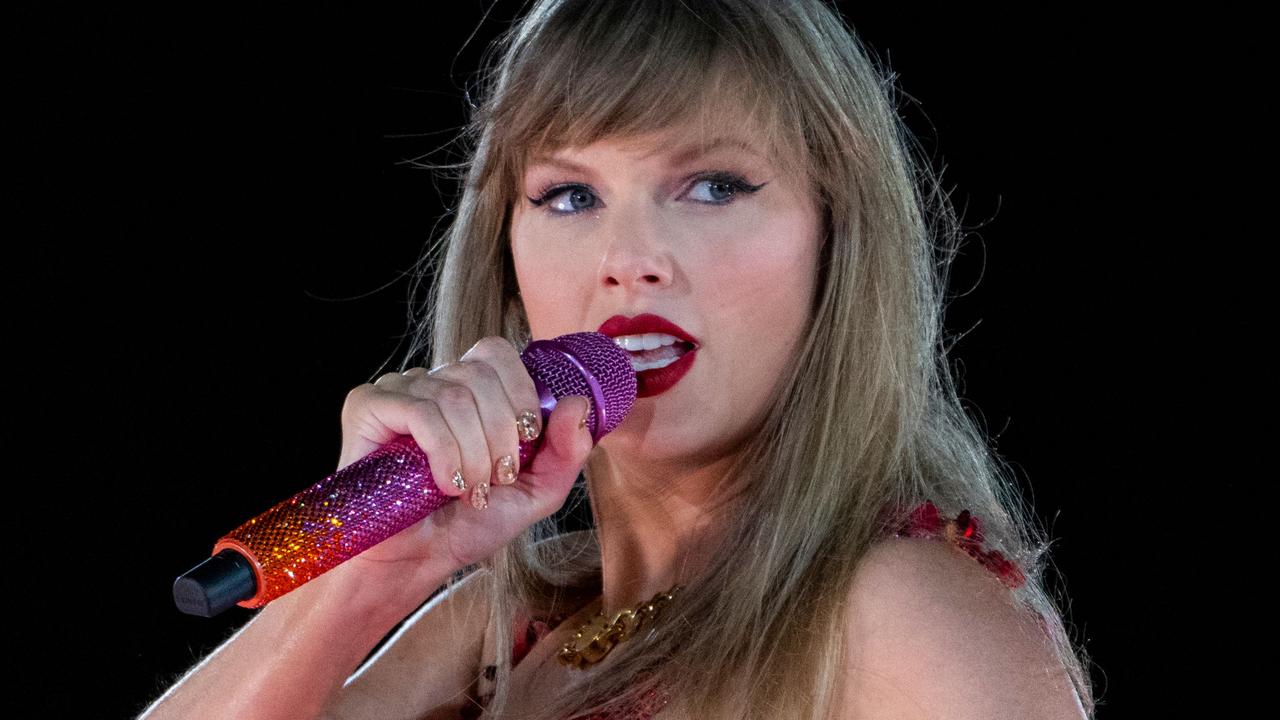Gone Girl: Is it better or worse if you’ve read the book?
THE movie adaptation of Gone Girl is killing it at the box office. But the question on many prospective film-goers’ lips is, “Should I read the book first?” WARNING: Major spoilers ahead.
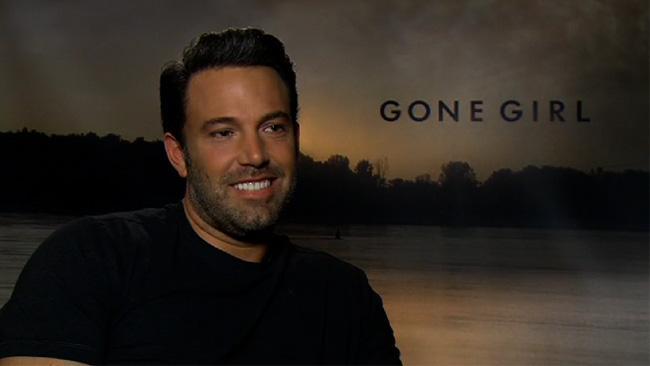
Books
Don't miss out on the headlines from Books. Followed categories will be added to My News.
ADAPTING novels into films is nothing new. But, when a specific adaptation creates a perfect storm at the box office (best-selling book, high-profile director, star-studded cast), people tend to sit up in their seats and take notice.
David Fincher’s adaptation of Gillian Flynn’s Gone Girl is such a film.
For Gone Girl, the question on many prospective film-goers’ lips was, “Should I read the book first?”
Elite Daily Copy Editor Alexis Gutter (who read the book) and Entertainment Writer Adam Pliskin (who did not read the book) discuss their reactions to the film, namely whether this particular adaptation was a success:
*WARNING: Major spoilers ahead!*
Alexis Gutter: I read Gone Girl days before the movie was released so it would be fresh in my mind, and I would be as invested in the film as possible. I was surprised by how consumed I was by the novel, largely because I can’t remember the last time a book kept me up past my self-imposed bedtime.
So, going into the movie, my expectations weren’t strict or specific. I was just excited to see how the film would be framed, given that the book displayed incredible control in regards to plot development and structure.
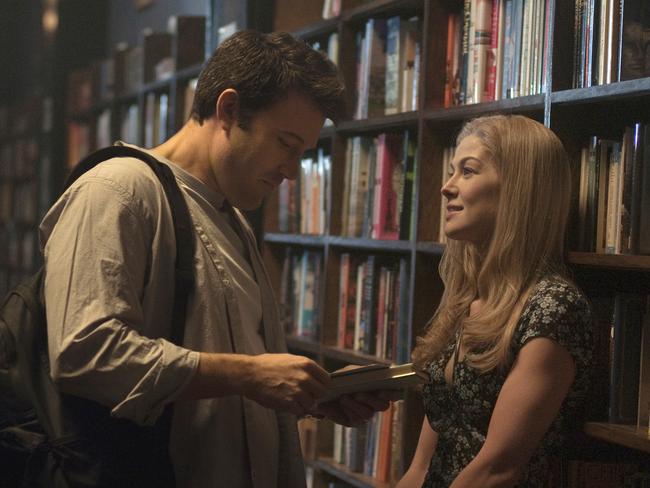
What did you expect?
Adam Pliskin: Well, I, like an illiterate troglodyte, didn’t read the book. So, my expectations were formed entirely from the trailer and from the filmmaking side of things.
David Fincher is one of my favourite directors working today, so my expectations were naturally high. But, his last film, The Girl with the Dragon Tattoo disappointed me. I hoped Gone Girl would be his return to form.
I also knew there would be some giant twist laying in wait for me, so I eagerly anticipated that while watching the movie. Twist aside, I knew very little about how the plot would unfold, which I suppose is ideal for a thriller of this sort.
Though, as per usual, my expectations were probably too high, which ultimately led to disappointment.
Was it the movie you saw in your head?
AG: I knew the adaptation likely wouldn’t mirror the book’s pace because its structure is so fragmented (which I don’t think would work well in film). I had hopes that since author Gillian Flynn also wrote the screenplay and Fincher was behind the camera, it would pan out well.
But, there were many crucial aspects of the book I missed. The book’s first act uses short chapters that switch between Nick’s real-time perspective and Amy’s past-tense diary entries.
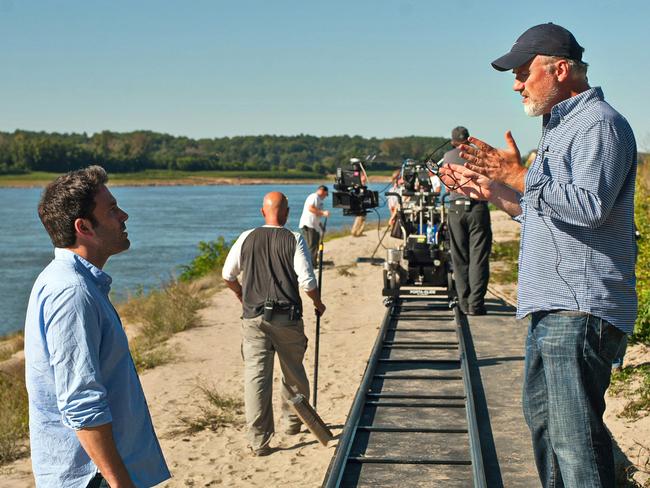
Though we don’t yet know the diary entries are bogus, we trust them because they’re all we know about the years of Nick and Amy’s relationship that preceded her disappearance. (Plus, we have no reason not to trust them.)
The movie structure, though, is so different that I felt it was pretty obvious from the get-go that Nick didn’t kill his wife. A film about a husband trying to prove his innocence isn’t as compelling as a tense murder mystery.
Did you think there was a chance Nick killed Amy? Was the murder-mystery aspect of the film captivating for you?
AP: I think that’s a great point about the structure of the film failing the source material. I never really suspected that Nick killed Amy (mostly because I knew there was some big twist coming), but I was still compelled by the first half of the film.
It was atmospheric. It was tense. And I was along for this magical mystery ride.
But, upon learning of Nick’s innocence, the wind is completely taken out of the film’s sails. There’s really no more ambiguity to clear up. It just becomes about process, and I’m still not sure if I understand the motivations behind said process.
Basically, once the twist comes, it ushers in an entirely different movie. And, like you said, that movie isn’t as interesting as the movie we were given in the first half.
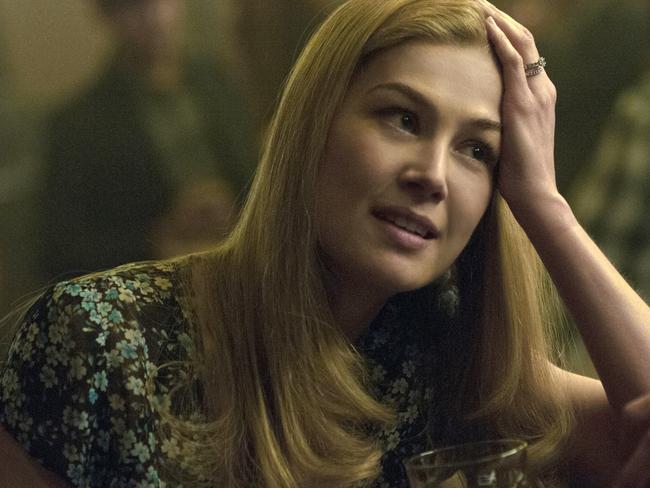
Was there anything central, thematically speaking, that you think was lost in translation?
AG: Yes, I do. First, the book provides more examples of how child sociopath Amy gave way to a much more menacing and dangerous adult sociopath Amy.
The film’s plot seems almost trunkless. It lacks footing and context. For instance, in the book, Nick learns that the girl who he knew to be Amy’s boarding school stalker was actually just an impressionable teen who thought she was Amy’s best friend.
After the friend disappointed Amy for inconsequential reasons, Amy broke her own ribs and threw herself down a flight of stairs to frame this girl. As Nick learns this, he becomes all too aware of how skilled his estranged wife is at covering her tracks.
The book is really a rhetorical question about whether or not you can truly know someone — even the person you’re supposed to know best. I don’t think the movie completely failed at this, especially considering my boyfriend whispered to me halfway through that he’s now terrified of me. But, the theme wasn’t as fully realised as it could have been.
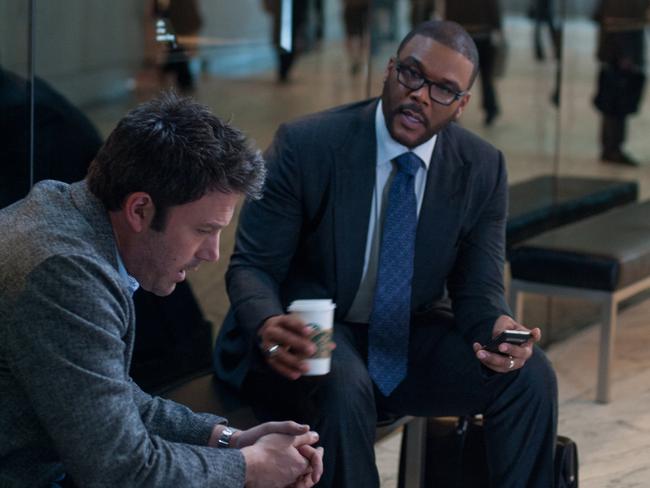
What did you think the theme of the movie was (or tried to be)?
AP: I’m not sure if there’s just one overarching theme here. Like you said, it’s definitely about whether or not you can truly know another human being. And, if you follow that thematic logic, maybe, in some way, it makes sense we don’t know all that much about Amy and the motivations behind her actions.
Though, it does seem rather lazy from a storytelling perspective, which is why characters who are “just crazy” never really appeal to me.
Even if a character is a sociopath, there has to be some way in for us as an audience to empathise with him or her. Even if the character can’t empathise introspectively.
But, if I had to choose one thematic thread and follow it throughout the film, I’d probably say the movie is about storytelling. Nick tells one version of the story to the cops; Detective Boney has her own story she’s weaving, and, of course, there’s the meticulous story Amy concocts with the help of her handy dandy diary.
So, on one hand, I think the film does a good job with said storytelling aspect, especially as it makes you question the reliability of the narration. But, I would have liked to have seen more of the unreliability spread around as Amy gets the lion’s share.
Nick gets the first word in this movie, as voiceover narration, and after that, we never hear from him again, which I found odd.
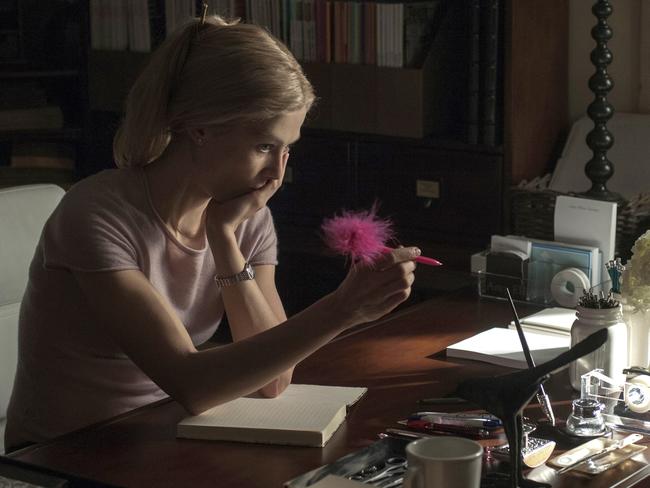
What did you think about the shifts in perspective in the movie vs. the way it was handled in the book?
AG: I bet you’re not surprised that I prefer the book to the movie, regarding perspective.
In the book, when we learn Amy is alive, the perspectives switch from “present-day Nick” and “diary Amy” to “present-day Nick” and “present-day Amy.” Amy’s reflections on the phony persona she assumed to create diary Amy turns us on to her evil genius; this turn could not be accomplished without the deft change in perspective.
I agree that the voiceover choices for the film are curious. Amy’s voiceovers give us insight into what she’s thinking, and Nicks relative lack of narration implies that he’s thinking nothing. In general, the choices regarding which plot points to ignore and/or change fatally compromise the viewers’ ability to understand any character deeply.
I think the reason I enjoyed the movie as much as I did (which wasn’t an exorbitant amount) is because reading the novel beforehand blindly invested me to the story’s premise. For example, both “Sex and the City” movies are really awful, but because I’m a fan of the show, I’ve watched both movies more times than I care to admit.
Regarding “Gone Girl,” I imagine many fans of the book, who say they enjoyed the movie, enjoyed it, at least in part, because of the warm, nostalgic effect that comes with seeing characters you feel like you already know.
Without the book and its built-in fanbase, I can almost guarantee the screening I saw would not have been sold out.
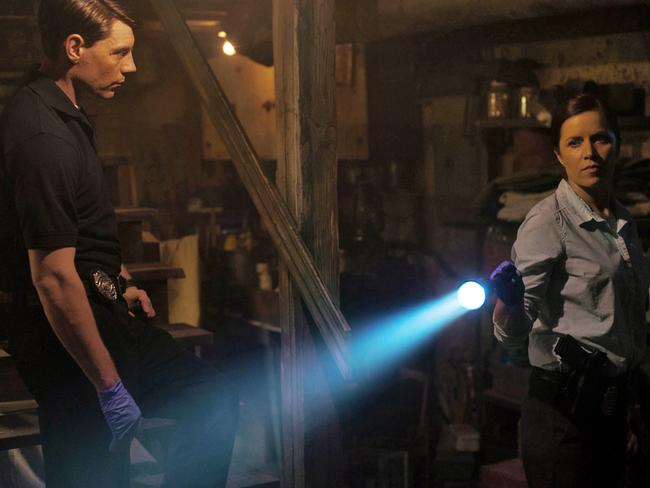
Do you think Gone Girl worked as a film?
AP: Overall — and, again, I say this without having read the book — I feel that the fact that it was originally a novel (especially one that relies so heavily on shifts in perspective) hampered the film. Look, it was definitely a movie, and it worked as such. But, a lot of that might just be Fincher willing it into existence.
It was definitely limited by its adherence to the source material, and the fact that Gillian Flynn wrote both the book and the screenplay probably didn’t help this issue.
My major problems with the film were in its uneven tonal shifts. It almost felt like three different films. There’s the seemingly straightforward murder mystery, then the big twist where Amy takes the driver’s seat, and then we have Nick trying to catch Amy red-handed, capped off by Amy’s return.
Sure, you could argue that’s just classic, three-act structure, where each act feels different from the last. But, for me, these acts didn’t gel; they felt too tonally disparate and too disconnected for the film to work as a coherent whole.
I also think the movie would have benefited from being about 30 minutes shorter. But I could say that of almost any Fincher film.
Gone Girl certainly wasn’t a bad film. It was just an unfocused one.
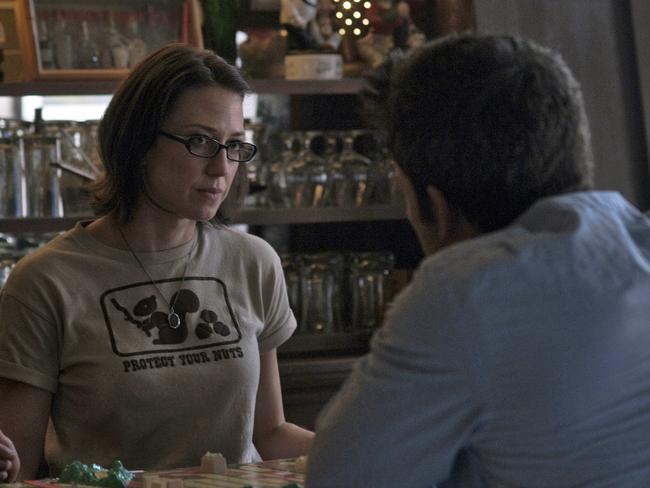
This article was written by Alexis Gutter from Elite Daily and was legally licensed through the NewsCred publisher network.
Originally published as Gone Girl: Is it better or worse if you’ve read the book?

